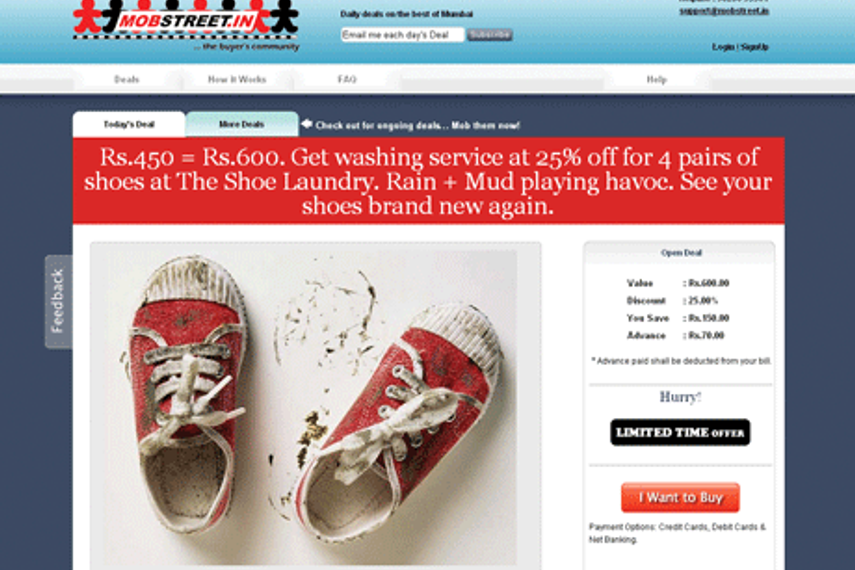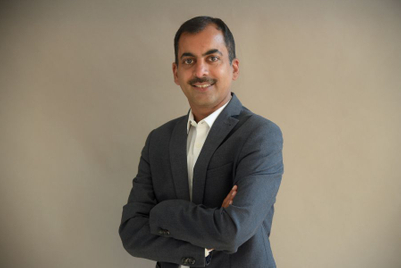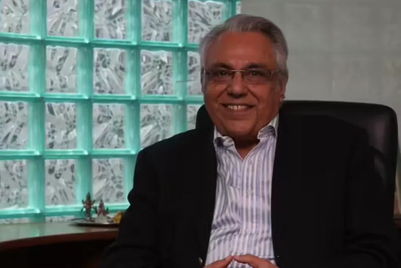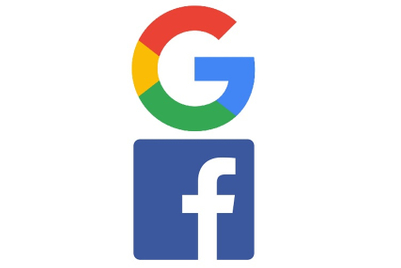
As internet phenomena go, this one’s all over the place in India at the moment. If you haven’t heard about it as yet, here’s the lowdown on group buying and why it’s currently the sweetest deal for the services industry, consumers and the players in the online market.
1."Group buying" is said to be a "Made in China" product: the Chinese term for it is "Tuangou", and it refers to the trend of a group of online consumers getting together offline to go into a store and get themselves a good bargain (like Indians, the Chinese too supposedly love to haggle). Some savvy marketers spotted the opportunity to make a spot of money, and this led to the setting up of online portals where consumers can now be part of a group deal with complete strangers and without leaving the comfort of their computers. The focus of the activity is on stuff everyone loves to splurge on like a salon treatment, a dinner at a nice restaurant or even getting shoes drycleaned. One of the most prominent among these websites is the Chicago-based GroupOn, which started operations in 2008.According to Spandan Tolia, founder of Mobstreet.in, a three-month old group buying website in the Mumbai market, news that GroupOn had managed to raise USD 135 million in its recent round of financing was the “ka-ching” factor for the 10-12 websites in the fray in India. He estimated there was about Rs 50 crores are invested in the business in India already and expected revenues are Rs 10-15 crores by the end of this financial year. He added, “In India, many drivers are in place in terms of demographics, youngsters, social media, high disposable incomes and willingness to spend.”
2.So how does it work for everyone? For the website owner, there are no permissions or licenses to be sought for this business for now, according to Tolia. The main expenditure is for manpower or people to go get the deal. Then, small and medium marketing services are approached: the draw is for marketing services like restaurants, pubs, lounges, spas, salons etc. The size of the business is important. "They’ll never be too big to advertise except through SMS and pamphlets for their promotions and they’re not ‘mom-and-pop’ either. This is where the middle class and upper middle class spend money and they have no organised platform to get more footfalls," explained the Mobstreet owner.
The owner of the business then has to be convinced of the concept of group buying; thankfully, it’s something he or she is being approached for many times now. “It’s zero risk for them and there’s no cost to us. We make money on commissions, and they’re only cutting on their profits but that’s their customer acquisition cost: out of 50 new buyers, it’s likely 5 will become regulars,” said Tolia. The commissions are in the region of 10-40% of the deal: for example, if the deal is to pay Rs 150 for a Rs 300 pizza, then the website owner makes Rs 15 for every purchase. Also, commission margins are lower for enterprises like restaurants, where there’s an actual raw material charge, and higher for businesses like a salon, where it’s largely a skill set that is paid for.
The third person in the process is the most critical – the online consumer. How it works for them is explained on virtually every website, and many times through a video. The Mobstreet website explains: “Mob Deal: “Minimum number of buyers” is required to make the Deal Go Live. If the minimum number of buyers is not reached before time runs out, the deal is cancelled. You are not charged anything. We refund your advance money immediately. (In fact, your Credit / Debit card is not even charged till the deal goes live, the amount is only blocked.)”
3.The consumer doesn’t have to even know the people he’s in a group deal with, thanks to social media like Facebook. Tolia said, "It’s you, me and 50 strangers through social media. If one person clicks "like" [for a deal on the Mobstreet India Facebook page], it also starts showing on other people’s pages, and it gets very viral. The idea is that these medium help to spread the word faster and deeper [for us]."
4.More players will enter the market, but some change will have to be in the offing at some point. "Right now, all of us are copycats," said Tolia. "Some amount of differentiation has to come in in terms of scale or products."
What it means for…
Small-to-medium businesses
- Brand awareness
- New customer trials
- Likelihood of consumers spending more as top-ups
- Real conversions as customers become regulars
- Decrease in profit margins
- Choice of websites to deal with
Ad agencies
- Currently, 95% of the businesses don’t take the services of an ad agency
- In the future, a group buying deal could be a new platform for digital communication







.jpg&h=268&w=401&q=100&v=20250320&c=1)

.png&h=268&w=401&q=100&v=20250320&c=1)
